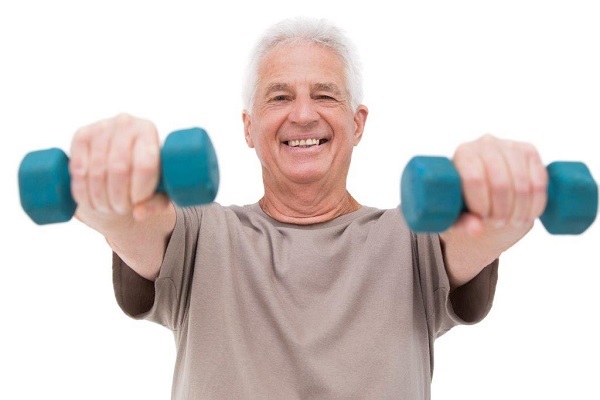
This is the third in our series of posts concerning the benefits of exercise in our senior years. Specifically its effects on balance, disease, mental state and strength. This post will address the effects of exercise on mental health as we age.
As we grow older not only do we change physically but our mental capacities change as well. Memory isn’t as sharp as it used to be, feelings of depression can start developing as well as anxiety. This can be due to many factors. The real question is, how do we prevent this from happening? Not to sound like a broken record but the answer that you’re about to find out is, EXERCISE.
At first you would think that since we are talking about mental capabilities, that’s exactly where we should start. And although memory tests and certain brain games have their place so does physical movement.
In Scotland a study was done with 638 people who were born in 1936. At the age of 70 they all filled out questionnaires which reported on their physical, mental and social activities. At the age of 73 MRIs were done to measure the size of their brains. It is inevitable that with age our brains shrink, nerves die and lose their connections. Or is it? Over the three years those who exercised the most had the largest brains compared to those that were less physically active. Study author Alan J. Gow from the University of Edinburgh in Scotland stated, “People in their seventies who participated in more physical exercise, including walking several times a week, had less brain shrinkage and other signs of aging in the brain than those who were less physically active”. Furthermore, he states “our study showed no real benefit to participating in mentally stimulating activities on brain size.”
So what kind of physical activity is best? We’ve discussed aerobic activity via walking. But what about resistance training or toning and balancing? Glad you asked.
Researchers at the University of British Columbia assigned 155 women ages 65 to 75 different tasks to perform over the next year. One group performed resistance training once or twice a week and the other group did toning and balancing movements twice weekly. At the end of the yearlong study the women who weight trained showed an improvement on cognitive tests of memory and learning. Their scores in executive functioning improved by 12%. Those that just did balancing and toning showed no improvement. And by the way, the strengthening exercises helped them increase their walking speed. A faster walking pace has been linked to lower mortality.
What is even more interesting about this study is this: in the past studies have focused on aerobic activity which experts believe promotes blood flow which in turn enhances cognitive function. Resistance training requires a considerable amount of processing. How to use the equipment properly, what to focus on while performing certain movements. Walking doesn’t require as much thought. But studies have shown that the learning required while doing resistance training can help older adults maintain mental acuity.
In addition, weight training shows an increase of a growth factor which helps maintain skeletal mass. Which also promotes nerve growth and can be another way that resistance training boosts mental function.
So what are you waiting for? Next time you’re at the gym walk right past those treadmills and pick up some weights. Better yet hire a well-qualified Personal Trainer to get you started. You’ll be eternally smarter for it!
Our next and final post in this series will discuss exercise’s effects on strengthening in our senior years and why this is important.
For more Health and Fitness information please visit our ongoing blog at